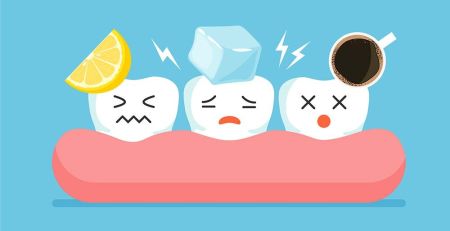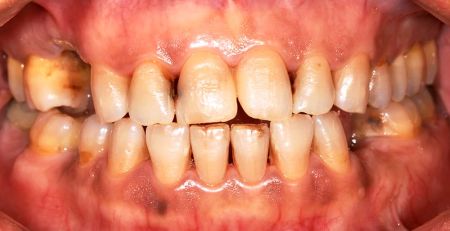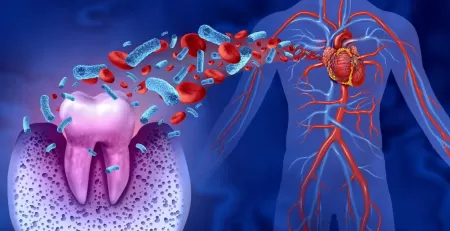Dysgeusia is characterized by an altered sense of taste, often described as a persistent metallic, bitter, or foul taste in the mouth.
Below is an overview of dysgeusia, including its symptoms, causes, diagnosis, and treatment:
Symptoms of Dysgeusia
Dysgeusia is characterized by a range of symptoms that affect the sense of taste.
One of the primary symptoms is the persistent presence of an unpleasant taste in the mouth.
This can manifest as metallic, bitter, or sour sensations that often linger and can be distressing.
Another significant symptom is a reduced ability to detect or enjoy flavours.
Impairment can diminish the pleasure of eating and may affect nutritional intake.
Additionally, individuals with dysgeusia often experience changes in taste perception.
As a result, previously enjoyable foods might suddenly taste different or become unappealing.
This alteration in taste can lead to a disinterest in food and impact dietary habits.
Furthermore, dysgeusia is sometimes accompanied by a dry mouth or altered saliva production.
These changes in the oral environment contribute to altered taste sensations and lead to discomfort and other health issues.
Together, these symptoms can significantly impact a person’s quality of life, affecting their enjoyment of food and overall well-being.
What are the Causes of Dysgeusia?

Medications
Dysgeusia, the medical term for a distorted sense of taste, can be caused by various factors.
Medications are a common culprit; certain drugs like antibiotics, antihistamines, antidepressants, and medications prescribed for hypertension are known to cause disturbances in taste.
These taste alterations can range from mild to severe and may persist as long as the medication is taken.
Infections
Infections, particularly those affecting the respiratory system, sinuses, or oral cavity, can also impact taste sensations.
These infections can alter the way taste buds perceive flavours, leading to temporary or sometimes prolonged dysgeusia.
Additionally, dental issues play a significant role in the development of dysgeusia.
Problems such as gum disease, oral thrush, or even specific dental procedures can lead to changes in taste perception.
Nutritional deficiencies
Nutritional deficiencies are another contributing factor.
Insufficient zinc, vitamin B12, and other essential nutrients can significantly impact taste buds and lead to dysgeusia.
These nutrients are vital for adequately functioning the taste and sensory systems.
Hormonal changes
Hormonal changes are also known to trigger taste alterations.
Conditions such as pregnancy, menopause, or other hormonal imbalances can lead to temporary or lasting changes in taste perception.
Nerve Damage
Nerve damage resulting from conditions like Bell’s palsy, multiple sclerosis, or head injuries can cause dysgeusia.
This is due to the impaired function of nerves responsible for taste sensations.
Aging
Aging naturally brings about changes in taste perception. As people age, their taste buds may become less sensitive, leading to a diminished ability to enjoy a range of flavours.
This change is normal in aging but can be more pronounced in some individuals.
Other Factors
Lastly, other factors like smoking, poor oral hygiene, undergoing chemotherapy or radiation therapy, and psychological factors such as stress or anxiety can contribute to the development of dysgeusia.
These factors can either directly impact the taste buds or affect the overall health condition, leading to changes in taste perception.
Dysgeusia Diagnosis
Diagnosing dysgeusia involves thoroughly examining medical history, oral health assessment, and potentially additional tests, depending on the suspected cause.
Sometimes, blood tests, imaging studies, or specialist referrals may be necessary.
How to treat Dysgeusia?
Treatment for dysgeusia depends on identifying and addressing the underlying cause. Some approaches may include:
- Medication adjustment: Altering or changing medications contributes to taste alterations.
- Oral hygiene improvement: Good oral hygiene practices, including regular brushing, flossing, and tongue cleaning.
- Nutritional supplements: Correcting dietary deficiencies through supplementation.
- Taste modification techniques: Experimenting with different flavours or cooking methods to enhance taste perception.
- Managing underlying conditions: Treating infections, dental problems, or systemic conditions affecting taste.
It is essential to consult a healthcare professional or dentist for a proper diagnosis and personalized treatment plan for dysgeusia.
They can help identify the underlying cause and provide appropriate guidance to manage this condition effectively.
It’s important to note that diagnosing dysgeusia can be challenging as there is no specific test for this condition.
The diagnostic process mainly involves ruling out other potential causes and considering medical history, physical examination, and additional tests if necessary.
As a result, referral between healthcare professionals and specialists might be required.
If you are experiencing persistent taste disturbances, it is recommended to consult with a healthcare professional or dentist for a proper diagnosis and recommended treatment plan.
They can help identify the underlying cause and provide appropriate guidance to manage your symptoms effectively.
Depending on the suspected underlying cause or if symptoms persist despite initial evaluations, your healthcare provider may refer you to specialists such as otolaryngologists (ear, nose, and throat specialists), oral medicine specialists, or neurologists for further evaluation and management.
Disclaimer: The information presented in this dental medical article is intended for informational purposes only.
It should not be considered professional dental or medical advice, diagnosis, or treatment. The content is based on general knowledge and understanding and may not apply to individual dental or medical conditions.
Always consult a qualified dentist or healthcare professional for personalized advice and guidance regarding your dental or medical situation.










